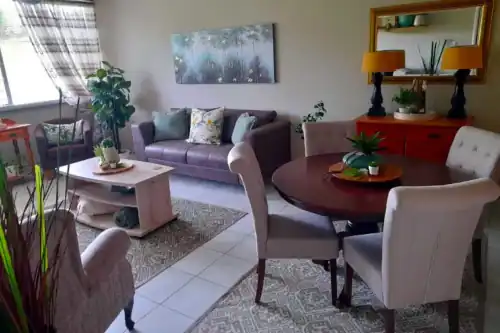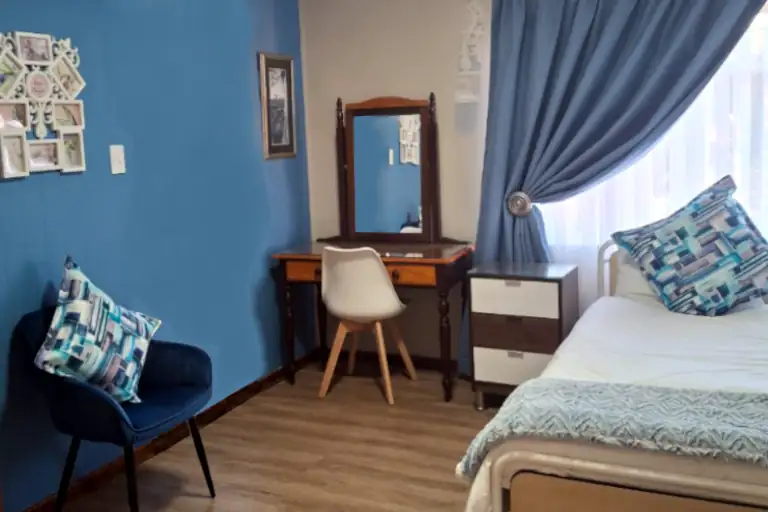A Comprehensive Guide to Mastering Sleep Challenges in Later Life
Sleep shapes how we think, feel, and thrive, yet for many seniors, restful nights feel like a distant memory. Up to 70% of older adults grapple with sleep disorders, from insomnia to sleep apnea, often dismissing these struggles as an inevitable part of aging. This belief, deeply ingrained, leads to countless restless nights going unaddressed, robbing seniors of energy, clarity, and joy. But here’s the truth: poor sleep isn’t a life sentence.
Research reveals that targeted strategies, from natural remedies to evidence-based therapies, can transform sleep quality, even in later years. By challenging the myth that restless nights are normal, seniors can unlock sharper minds and stronger bodies. This post proves that sleep disorders are manageable, offering practical solutions to build a foundation for vibrant aging.
For more on thriving in retirement, explore Embracing Mourning with Resilience – A Guide (https://lagratitude.co.za/mourning/) and Retirement Travel: A Planning Guide from Vision to Voyage (https://lagratitude.co.za/retirement-travel/). Read on for clarity, strategies, and hope to reclaim restful sleep.
Modern Living Flats

Basic Cottages

Modern Comfort Cottages

Comfortable Frail Care

Prevalence of Common Sleep Disorders in Seniors
| Sleep Disorder | Prevalence | Key Impacts |
| Insomnia | Up to 50% of seniors | Daytime fatigue, reduced quality of life |
| Obstructive Sleep Apnea (OSA) | 70% of men, 50%+ of women | Cardiovascular risks, cognitive decline |
| Restless Legs Syndrome (RLS) | Varies, often underdiagnosed | Disrupted sleep, uncomfortable sensations |
| Periodic Limb Movement Disorder | Common often overlaps with RLS | Involuntary movements, fragmented sleep |
| REM Sleep Behavior Disorder | Less common, but significant | Physical dream enactment, injury risk |
Why Sleep Disorders Matter More Than You Think
Most assume sleep disorders in seniors are just part of growing older, a norm to be endured rather than addressed. This mindset leaves millions suffering in silence, with nearly half of the cases undiagnosed.
Sleep disorders are not inevitable but a health challenge that can be tackled. Quality sleep fuels memory, immunity, and emotional resilience, making it a cornerstone of healthy aging. By prioritizing sleep disorders, seniors can reclaim vitality and independence. This section sets the stage for understanding why sleep matters and how to take control.
Common Sleep Disorders in Seniors
Sleep disorders in seniors vary widely, each impacting quality of life. Insomnia, affecting up to 50% of seniors, makes falling or staying asleep a nightly battle, leading to daytime fatigue. Obstructive Sleep Apnea (OSA), prevalent in 70% of older men and over 50% of women, disrupts breathing, raising risks for heart disease and cognitive decline.
Restless Legs Syndrome (RLS) and Periodic Limb Movement Disorder (PLMD) cause disruptive sensations or movements, while REM Sleep Behavior Disorder leads to physically acting out dreams, risking injury. Recognizing these sleep disorders is the first step to addressing them effectively, ensuring seniors regain restful nights and vibrant days. Next, we explore why these issues intensify with age.
The Role of Aging and Retirement
Aging naturally alters sleep patterns, reducing melatonin and shifting circadian rhythms, leading to lighter, fragmented rest. Chronic conditions like diabetes or heart disease often worsen sleep disorders, compounding the challenge. Retirement adds another layer: some seniors enjoy better sleep without work stress, while others struggle with lost routines or loneliness.
Understanding these factors helps tailor solutions to individual needs, whether it’s adjusting daily habits or addressing emotional isolation. By tackling the root causes of sleep disorders, seniors can build lasting improvements. Let’s examine how medications can complicate this picture.
The Medication Challenge
Polypharmacy, common among seniors, significantly disrupts sleep. Nearly half of those over 80 taking five or more medications report sleep disorders, with drugs like SSRIs, beta blockers, and diuretics interfering with rest. This often triggers a cycle of additional prescriptions to manage side effects, further complicating sleep health.
Reviewing medications with a healthcare provider can break this cycle, identifying alternatives or adjustments to restore restful nights. Addressing sleep disorders caused by medications empowers seniors to regain control. Next, we explore natural remedies to support better sleep.

Natural Remedies and Lifestyle Adjustments
Seniors don’t need to rely solely on medications to combat sleep disorders. Natural approaches offer effective alternatives:
- Herbal remedies like chamomile, valerian, hops, lavender, and tart cherry improve sleep quality.
- Melatonin supplements, when used responsibly, help regulate circadian rhythms.
- Consistent bedtimes, regular exercise, and a restful bedroom environment (dark, quiet, cool) build long-term sleep health.
These strategies provide safe, measurable benefits, empowering seniors to address sleep disorders and thrive. Let’s dive into evidence-based therapies for even stronger results.
Evidence-Based Therapies
Cognitive Behavioral Therapy for Insomnia (CBT-I) is the gold standard for treating sleep disorders like insomnia in seniors. It reduces nighttime awakenings and sleep onset difficulties, with benefits lasting up to a decade. Other non-pharmacological options include:
- Mindfulness meditation to ease anxiety and promote relaxation.
- Acupressure to target specific points for better sleep quality.
- Progressive muscle relaxation to release physical tension.
These methods offer side-effect-free solutions, helping seniors overcome sleep disorders with confidence. Next, we focus on solutions for sleep apnea.

Addressing Sleep Apnea in Seniors
Obstructive Sleep Apnea, a common sleep disorder, requires targeted intervention. Continuous Positive Airway Pressure (CPAP) therapy is highly effective, normalizing cardiovascular risks and boosting memory in compliant users. For those unable to tolerate CPAP, alternatives include:
- BiPAP to adjust pressure for easier breathing.
- Oral appliances to reposition the jaw and keep airways open.
- Positional therapy to encourage sleep positions that reduce blockages.
- Weight management to lessen apnea severity.
Personalizing treatment ensures seniors can manage this sleep disorder, improving energy and focus. These solutions pave the way for better rest in retirement communities.
Improving Sleep in Retirement Communities
In retirement facilities, environmental factors like noise, poor lighting, or disruptive care routines often exacerbate sleep disorders. Limited social engagement or physical activity can further hinder rest. Solutions include:
- Structured group activities to foster connection and health.
- Optimized lighting to support circadian rhythms.
- Quiet hours and noise reduction strategies.
- Comfort-focused environments prioritizing well-being.
By addressing these factors, retirement communities help residents overcome sleep disorders, enhancing overall health. These changes create a supportive foundation for restful nights and vibrant days.
Conclusion
Sleep disorders in seniors are not an unavoidable fate but challenges that can be managed with insight and action. From natural remedies to evidence-based therapies like CBT-I, seniors can overcome insomnia, sleep apnea, and other disruptions.
By addressing root causes—medications, retirement transitions, or environmental factors—restful sleep becomes a cornerstone of vibrant aging. This post has shown how to reclaim rest, offering clarity and strategies to build sharper minds and stronger bodies.
Discover a restful retirement at lagratitude.co.za, offering independent living cottages, beautiful garden surroundings, a secure and quiet environment, well-maintained facilities, and a sense of community and peace of mind. For more information or to schedule a viewing, visit lagratitude.co.za.

Disclaimer
The information provided in this blog post is for general informational purposes only and does not constitute medical advice. Always consult a qualified healthcare professional before making changes to your health regimen, including sleep management strategies or medication adjustments. La Gratitude is not responsible for any actions taken based on the information provided.
Citations
- Ancoli-Israel, S., & Ayalon, L. (2006). Diagnosis and treatment of sleep disorders in older adults. The American Journal of Geriatric Psychiatry, 14(2), 95–103. https://doi.org/10.1097/01.JGP.0000196627.13666.0e
- Bloom, H. G., et al. (2009). Evidence-based recommendations for the assessment and management of sleep disorders in older persons. Journal of the American Geriatrics Society, 57(5), 761–789. https://doi.org/10.1111/j.1532-5415.2009.02220.x
- National Institute on Aging. (2022). Sleep and aging: Understanding changes and challenges. https://www.nia.nih.gov/health/sleep-and-older-adults
- Ohayon, M. M., et al. (2004). Meta-analysis of quantitative sleep parameters from childhood to old age in healthy individuals. Sleep, 27(7), 1255–1273. https://doi.org/10.1093/sleep/27.7.1255
- Vitiello, M. V. (2009). Recent advances in understanding sleep and sleep disturbances in older adults. Current Directions in Psychological Science, 18(6), 316–320. https://doi.org/10.1111/j.1467-8721.2009.01659.x
You can make a difference
With your assistance, the volunteers at La Gratitude will be able to take better care of not only the residents at the old age home but also the greater Newcastle community. La Gratitude is constantly involved in outreach projects to help the elderly in need in and around Newcastle.
Your donations will be greatly beneficial in the provision of food and other basic necessities for the less fortunate elderly people that require assistance.
Donating is easy, click here to donate now.








